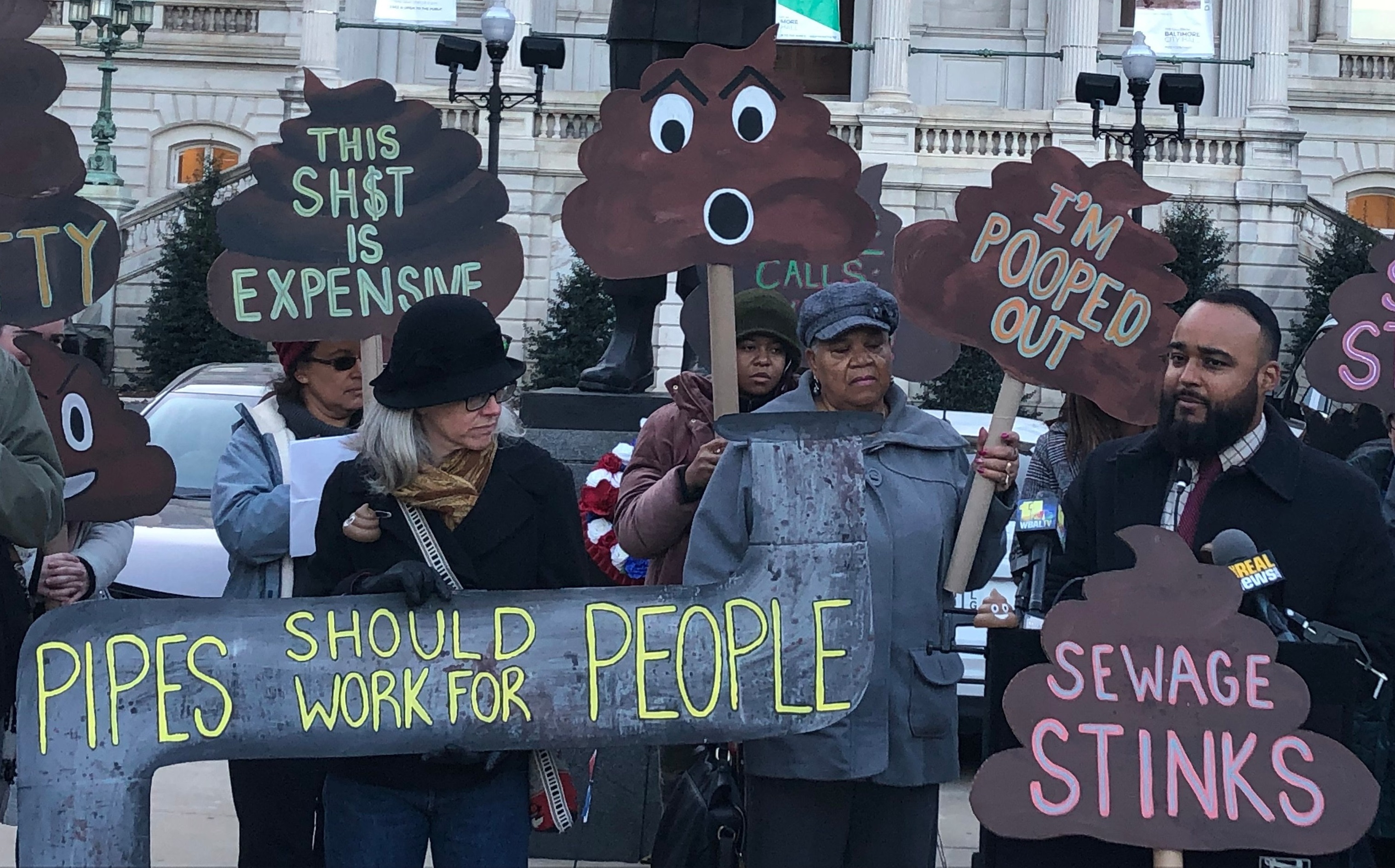
Final Decision Rests with Mayor Scott and Baltimore City DPW
Tonight, the Baltimore City Council will vote on a resolution to support expanded access to the City’s Sewage Onsite Support program, an action that would provide relief for hundreds of Baltimore residents annually who experience devastating sewage backups into their homes through no fault of their own. The resolution, entitled “Request for City Action – Expand the Sewage Onsite Support Program” will be introduced by Councilman Gray, and is cosponsored at introduction by Councilmembers Mark Parker, Ryan Dorsey, Odette Ramos, James Torrence, John Bullock, Phylicia Porter, Zac Blanchard, Mark Conway, Jermaine Jones, Antonio "Tony" Glover, Zeke Cohen, Isaac "Yitzy" Schleifer, and Sharon Green Middleton.
This resolution is a demonstration of support for a May 2023 directive from EPA and MDE instructing the Baltimore City Department of Public Works to expand the scope of the Sewage Onsite Support (SOS) program to offer direct cleanup assistance to any resident who experiences a sewage backup caused in part or in full by a condition in the City-owned portion of the collection system. In June 2023, the Department of Public Works disputed that order, with negotiations stretching out for more than 18 months. In the resolution, the City Council calls on the Mayor and DPW to immediately end its dispute over the directive and re-release the Revised Emergency Response Plan adopting EPA and MDE’s full original recommendation.
"Expanding DPW's SOS program to cover the cost of sewage backups during either dry or wet weather events is essential to ensuring that our residents are protected when the failure is on the city side,” said Baltimore City Councilman Paris Gray, 8th District. “We urge DPW to follow the EPA's order to expand the program, which our state partners at MDE strongly concurred with. At the end of the day, this is about doing what's right for the health and safety of our residents when the City's infrastructure fails."
“Only a tiny fraction of the $2 million set aside each year for these assistance programs is actually being used to help Baltimore families, despite the fact that thousands of backups are reported each year,” said Alice Volpitta, Baltimore Harbor Waterkeeper with Blue Water Baltimore. “Something needs to change. This is a matter of public health and environmental justice, and residents can't wait any longer for relief.”
“In the year and a half that DPW has dragged these negotiations out, there have been over 1,800 sewer backups documented by DPW caused at least in part by City-owned infrastructure, that would have been eligible for emergency cleanup assistance if the order were in effect,” said Jennifer Kunze, Maryland Organizing Director with Clean Water Action. “That’s 1,800 households that, because of DPW’s decision, have had to bear the cost of cleaning the City’s sewage out of their homes themselves. Mayor Scott and DPW must put an end to this now.”
“Sewage backups are a public health hazard and can be a massive financial burden for residents who can least afford it,” said Leah Kelly, a Senior Attorney with the Environmental Integrity Project. “This resolution supports expanded assistance for Baltimore residents who face the nightmare of raw sewage in their basements. Mayor Scott and the Department of Public Works should follow the instructions given by federal and state regulators in 2023 to expand the program to cover backups caused by pipe blockages.”
Baltimore City DPW will host its annual public meeting on the Modified Consent Decree for sewage overflows, which governs City actions such as assistance to households facing sewer backups, on January 30, 2025 at 6pm at the Cylburn Arboretum Volmer Center, 4915 Greenspring Avenue, Baltimore MD 21209.